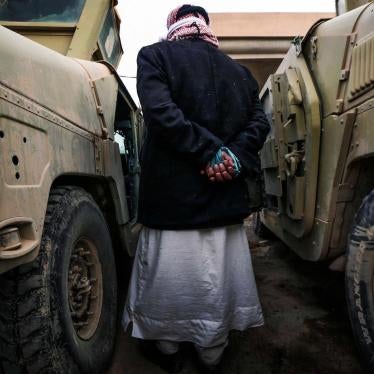Egypt should not execute three men sentenced to death by a State Security Court for the 2004 bombings in Taba, Human Rights Watch said today.
“If the government thinks these men are to blame for the outrages in Taba, it should prosecute them in a fair trial,” said Joe Stork, deputy director of Human Rights Watch’s Middle East division. “Executing these men after such deeply flawed trials would be a travesty of justice.”
On November 30, 2006 a State Security Emergency Court in Isma`iliyya sentenced Yunis Muhammad Mahmud `Alyan, Usama Muhammad `Abd al-Ghani al-Nakhlawi, and Muhammad Jayiz Sabbah Hussein to death after convicting them in connection with the October 7, 2004 bombings in and around the resort city of Taba. This court, established under Egypt’s Emergency Law, does not provide the right of appeal. Only the President of the Republic can order a retrial or alter the sentences. Human Rights Watch said it had information that legal advisers in Mubarak’s office recently recommended that he ratify the death sentences against these men.
Human Rights Watch opposes capital punishment in all circumstances because of its cruel and inhumane nature. While the death penalty has not been abolished as a matter of international law, there is consensus that it be imposed only in cases where due process has been scrupulously applied.
“It’s shocking that President Mubarak would ratify a death penalty imposed on the basis of coerced confessions and proceedings rife with irregularities,” Stork said.
Human Rights Watch, which had an observer at the trials, said that all three defendants alleged they confessed following extended periods of incommunicado detention and torture at the hands of State Security officers. During the proceedings the defendants had limited ability to consult with their legal counsel.
In the case of Yunis Muhammad, the court was not troubled that he confessed to having used a different kind of bomb in a different place and using a different car than crime scene investigators had determined had been used and placed in the attacks.
“We don’t know if these men are guilty, but we know that the state hasn’t proven it beyond a reasonable doubt,” Stork said. “Executing them would only further besmirch Egypt’s reputation as a country that values rule of law.”






